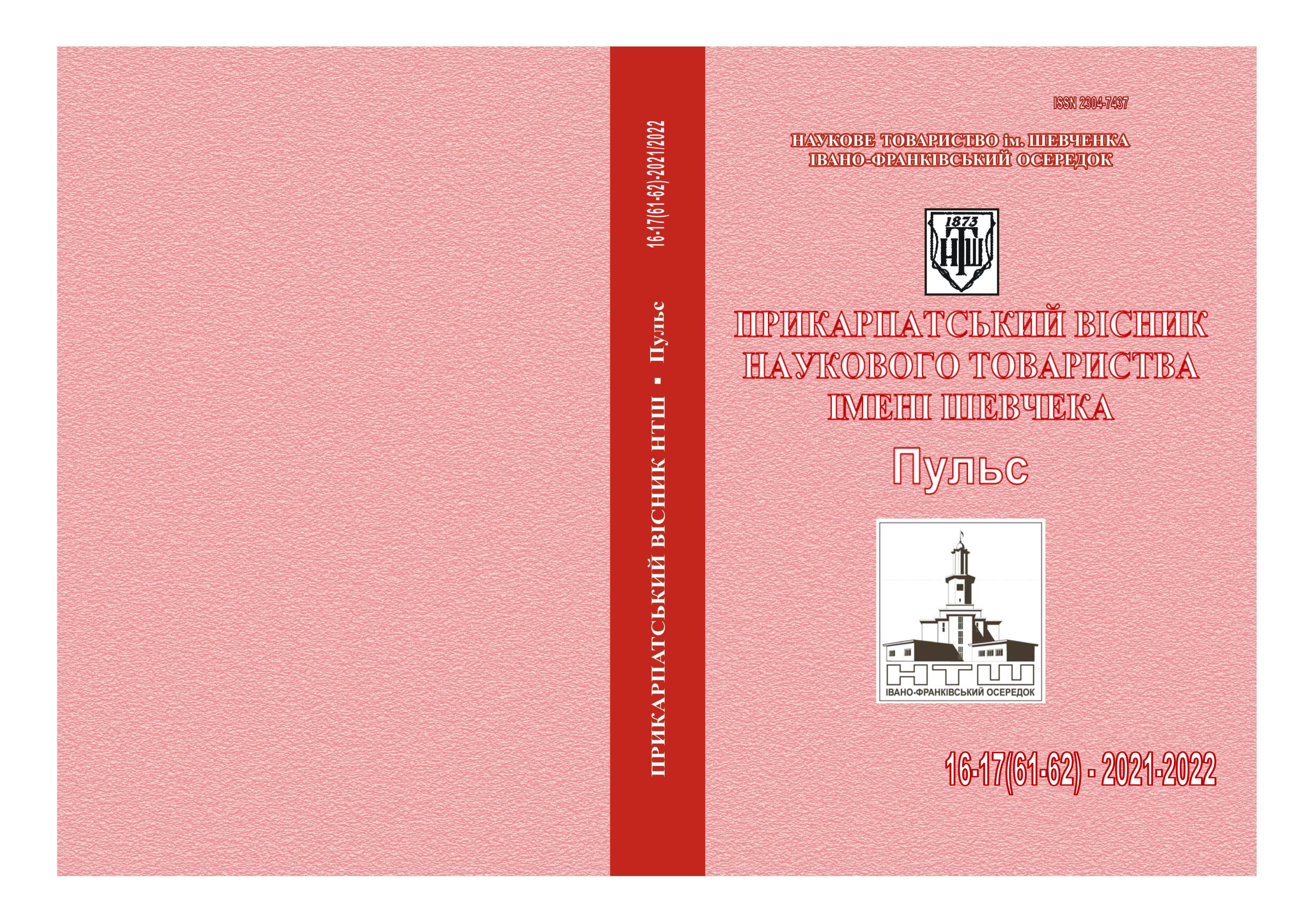ОСОБЛИВОСТІ ПЕРЕБІГУ ХРОНІЧНИХ КОРОНАРНИХ СИНДРОМІВ ІЗ КОРОНАВІРУСНОЮ ХВОРОБОЮ
DOI:
https://doi.org/10.21802/2304-7437-2021-2022-16-17(61-62)-31-38Ключові слова:
хронічний коронарний синдром, COVID-19, перебіг.Анотація
Нова коронавірусна хвороба COVID-19, спричинена вірусом SARS-CoV-2, призвела до небаченого раніше навантаження на систему охорони здоров’я та посіла чільне місце серед інфекційних захворювань за темпами поширення й розвитку ускладнень із боку різних систем організму. Серед основних факторів ризику, що негативно впливають на перебіг COVID-19 розглядають:вік понад 65 р, ішемічна хвороба серця (ІХС), хронічна серцева недостатність (ХСН), аритмії, хронічне обструктивне захворювання легенів (ХОЗЛ), куріння тощо. Існуючі результати обсерваційних досліджень щодо взаємного обтяжливого впливу коронавірусної хвороби на перебіг ССЗ загалом та хронічних коронарних синдромів (ХКС) зокрема часто носять суперечливий характер, що вимагає продовження досліджень у цьому напрямку. Метою роботи було вивчення особливостей клінічного перебігу коронавірусної хвороби COVID-19 у пацієнтів із хронічними коронарними синдромами. Обстежено 75 пацієнтів, які перебували на стаціонарному лікуванні з приводу коронавірусної хвороби COVID-19, ускладненої пневмонією. Пацієнтів розподілено на дві групи: досліджувану, яка включала 51 пацієнта з ХКС, та контрольну групу, до складу якої ввійшло 24 пацієнти, що не мали анамнезу ХКС. Проводили фізикальне та загально клінічне дослідження. Отримані нами результати свідчать про вірогідне зростання проявів задишки, болю в грудній клітці в пацієнтів із наявними ХКС, що може бути свідченням дестабілізації перебігу вінцевого атеросклерозу. Цікавим є факт виразного зростання частоти розладів нюху та смаку в хворих на COVID-19 за умови супутніх ХКС. Відмічено, що наявні ХКС збільшували тривалість перебування хворих на коронавірусну хворобу в стаціонарі, а також – потребу в кисневій підтримці; встановлена тенденція до зростання ризику смерті в таких пацієнтів. Не відмічено вірогідної різниці в рівнях СРП, про кальцитоніну, D-димеру в обстежених групах. Таким чином, хронічні коронарні синдроми в хворих на COVID-19 призводять до тяжчого перебігу недуги (тривалість перебування в стаціонарі, потреба в кисневій терапії) та ризику загальної смертності.
Посилання
Wolff D., Nee S., Hickey N. S., Marschollek M. Risk factors for Covid-19 severity and fatality: a structured literature review. Infection. 2021;49(1):15-28
Ministry of health of Ukraine. Available at https://moz.gov.ua/article/news/operativna-informacija-pro-poshirennja-koronavirusnoi-infekcii-2019-cov19
Silverio A., Di Maio M., Citro R. et al. Cardio vascularrisk factor sand-mortality in hospitalized patients with COVID-19: systematic revie wand-meta-analysis of 45 studiesand 18,300 patients. 2021;21(1):23
Parohan M., Yaghoubi S., Seraji A.et al. Risk factors for mortality in patients with Coronavirus disease 2019 (COVID-19) infection: a systematic review and meta-analysis of observational studies. 2020;23(5):1416-1424
Gao YD. Risk factors for severe and critically ill COVID-19 patients: A review. Allergy. 2021;76(2):428-455
Harrison S. L., Buckley B. JR., Rivera-Caravaca J. M. et. аl. Cardiovascular risk factors, cardiovascular disease, and COVID-19: an umbrella review of systematic reviews. Eur Heart J Qual Care Clin Outcomes. 2021;7(4):330-339
Husain Q, Kokinakos K, Kuo YH, Zaidi F, Houston S, Shargorodsky J. Characteristics of COVID-19 smell and tastedys function in hospitalized patients. Am J Otolaryngol. 2021;42(6):103068.
Szarpak L, Mierzejewska M, Jurek J, etal. EffectofCoronaryArteryDi-seaseon COVID-19-Prognosis and Risk Assessment: A Systematic Review and Meta-Analysis. Biology (Basel). 2022;11(2):221

